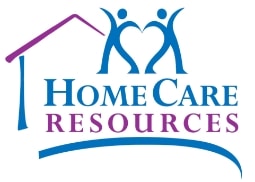
Seniors that are living independently may not notice some common signs of illness. Or, they may shrug off signs of illness as not being important. It can be difficult to know if some signs of illness in seniors are actually serious or if they are just part of the aging process. Seniors that have home care have an easier home noticing signs of illness because they have the advantage of having someone around that sees them every day. When seniors have home care, small changes in physical appearance or attitude are much more likely to get noted.
Weight Loss or Gain
Any change in a senior’s weight, whether it’s a significant weight loss or a significant weight gain, could be a sign of illness. Of course, if your senior parent is trying to lose weight then it’s not too surprising. But if they’re not trying to lose weight or if they lose a lot of weight all at once, that could be an indication that something is wrong.
Weight gain can be a side effect of many different medications, especially steroid medications which are often prescribed for seniors. If your senior parent didn’t recently start a new medication and they start to gain weight rapidly, it’s a good idea to see a doctor.
Increase in Pain
Sudden pain of any kind is something that seniors shouldn’t ignore. Dull pain could be an indicator of a chronic illness. Sharp pain could indicate a heart attack, stroke, or aneurysm. If your senior parent starts to experience sudden pain, take them to the emergency room right away or have a home care provider that is with them take them. You can’t be too safe when it comes to sudden pain.
Changes in Skin
Changes in skin can be an early indicator of a new illness or a sign that an existing illness is getting worse. If seniors start developing red patches on their skin, or extremely dry scaly patches of skin they should see a doctor. Swelling, bruises, any discoloration of the skin as well as spots, moles, skin tags, or other growths also mean that a trip to the doctor should be a priority. Seniors who start sweating a lot or having clammy skin should also see a doctor.
Fatigue
Seniors are prone to fatigue, even if they are usually pretty active. Fatigue by itself isn’t necessarily an indicator of illness, but in conjunction with other symptoms could mean such. Fatigue that is extreme or that doesn’t go away definitely should be checked out by a doctor. Your senior parent may just need more sleep, or they could be on medication that makes them tired like antihistamines which are commonly prescribed for allergies. If said fatigue changes or appears suddenly, it’s something your senior parent’s doctor should be aware of.
If you or an aging loved one are considering hiring Home Care in Peoria, AZ, please contact the caring staff at Home Care Resources at (602) 443-4700.
- Six Warning Signs of Diabetes to Watch for in Seniors with Dementia - May 19, 2025
- Understanding Chronic Conditions in Seniors: The Importance of Support - May 9, 2025
- Helping Your Elderly Loved One Maintain Healthy Vision - April 24, 2025




